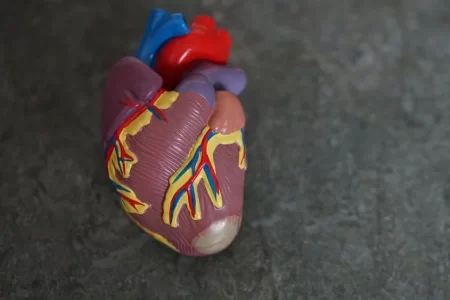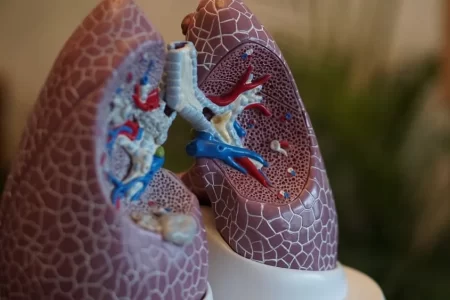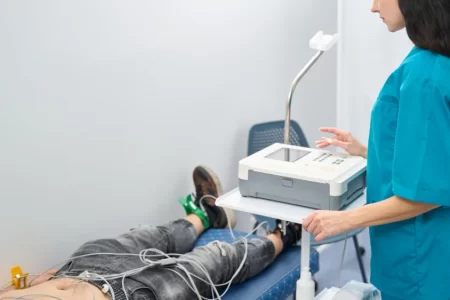Constipation ICD-10 Codes: A Comprehensive Guide to Diagnosis
- Updated on: Feb 29, 2024
- 3 min Read
- Published on Sep 6, 2023

What is Constipation?
Constipation refers to infrequent bowel movements or difficulty passing stool. It can result in hard and dry stool, straining during bowel movements, and a feeling of incomplete evacuation. While occasional constipation is normal, chronic constipation may require medical attention.
ICD-10 Codes for Constipation
3.1 ICD-10 Code K59.00
ICD-10 code K59.00 is used to describe constipation without mention of obstruction. It is a specific code that healthcare providers use for billing and coding purposes.
3.2 ICD-10 Code K59.01
ICD-10 code K59.01 is used for constipation with fecal impaction. This code is crucial for accurately documenting severe cases of constipation.
3.3 ICD-10 Code K59.09
ICD-10 code K59.09 covers other forms of constipation, ensuring that various constipation-related conditions are properly recorded.
Common Causes of Constipation
Constipation is a prevalent digestive problem characterized by infrequent bowel movements, difficulty passing stool, and often, hard and dry stool. Several common causes contribute to the development of constipation, and understanding these factors can help individuals take steps to prevent or manage the condition. Here are some of the common causes of constipation:
- Low Dietary Fiber Intake: A diet lacking insufficient dietary fiber can be a major contributor to constipation. Stool gains weight from fiber, which makes it simpler to move through the digestive system. Insufficient fiber intake can lead to slower bowel movements and difficulty in eliminating waste.
- Inadequate Fluid Intake: Proper hydration is essential for maintaining healthy bowel movements. When the body lacks adequate fluids, stool can become hard and dry, making it more challenging to pass through the intestines.
- Lack of Physical Activity: Regular physical activity stimulates the muscles in the gastrointestinal tract, promoting smoother bowel movements. A sedentary lifestyle can slow down these muscle contractions, leading to constipation.
- Medications: Certain medications, such as opioids, some antidepressants, and antacids containing calcium or aluminum, can have constipation as a side effect. If you suspect that your medication is causing constipation, it’s essential to consult your healthcare provider for possible alternatives or strategies to manage this side effect.
Symptoms and Signs
People of all ages might have constipation, a common digestive problem. Understanding the symptoms and signs of constipation is crucial for timely intervention and effective management. Here, we’ll explore the key indicators that can help you identify constipation:
- Infrequent Bowel Movements: One of the hallmark signs of constipation is having fewer bowel movements than usual. Typically, having fewer than three bowel movements per week is considered indicative of constipation.
- Straining During Bowel Movements: When constipated, you may find yourself straining or pushing harder than usual to pass stool. This could be unpleasant or uncomfortable.
- Hard and Dry Stool: Constipated stool often appears hard, dry, and lumpy, making it difficult to pass. It may require more effort and discomfort during elimination.
- Incomplete Evacuation: Despite making an effort, you may feel like you haven’t fully emptied your bowels after a bowel movement. This sensation of incomplete evacuation is a common symptom.
- Abdominal Discomfort: Constipation can lead to abdominal discomfort or pain. This discomfort is often described as cramping and is caused by the slow movement of stool through the intestines.
Diagnosing Constipation
Diagnosing constipation involves a systematic assessment by a healthcare provider to determine the underlying cause of the condition. While occasional constipation can often be managed through lifestyle changes, chronic or severe constipation may require a thorough evaluation. Here’s an overview of the diagnostic process for constipation:
- Medical History Review: The first step in diagnosing constipation is a comprehensive review of your medical history. Your healthcare provider will ask about your symptoms, their duration, and any factors that may contribute to your constipation, such as dietary habits, medications, and lifestyle.
- Physical Examination: A physical examination is typically performed to assess your overall health and identify any abdominal tenderness or masses that may be contributing to your symptoms. Your healthcare provider may also examine your rectum and anus for abnormalities.
- Digital Rectal Examination (DRE): In some cases, a digital rectal examination may be conducted. During a DRE, a gloved, lubricated finger is gently inserted into the rectum to check for any physical obstructions or abnormalities.
- Stool Examination: In certain situations, a stool sample may be analyzed for the presence of blood, which could be a sign of underlying issues such as hemorrhoids or gastrointestinal bleeding.
- Imaging Studies: If necessary, your healthcare provider may recommend imaging studies such as abdominal X-rays, CT scans, or colonoscopy to visualize the colon and identify any structural abnormalities, blockages, or other conditions that may be causing or contributing to constipation.
Treatment Options
- Lifestyle Changes: Simple lifestyle changes like increasing fiber intake, staying hydrated, and regular exercise can alleviate constipation.
- Dietary Modifications: A diet rich in fruits, vegetables, and whole grains can promote regular bowel movements.
- Medications: Laxatives and stool softeners may be prescribed for short-term relief of constipation.
- Therapies and Procedures: In severe cases, treatments like biofeedback therapy or surgery may be necessary.












